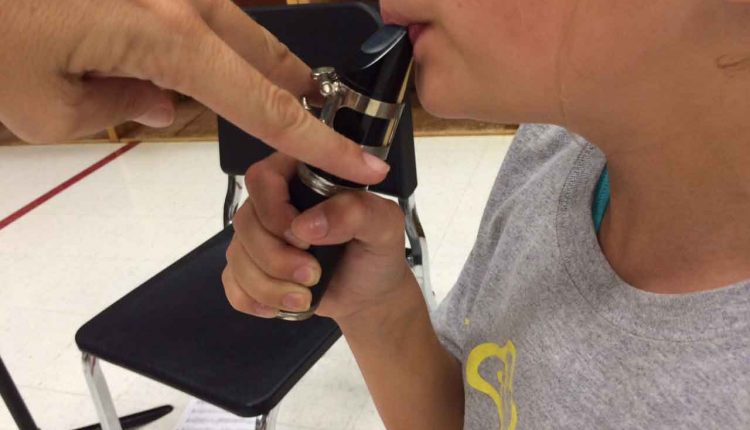There are many reasons why the young clarinetist tends to play flat:
Undeveloped embouchure
The undeveloped embouchure is of course number one. In the first notes that come out of the clarinet, there are many problems. Pitch is just one of them… we have tone color…. learning to tongue… learning to slur… and all the young guys want to do is make a sound (noise) and play a song they know…. at this point they do not understand pitch, tone color or anything but making noise…
The condition of the instrument
Above all the first time clarinet player need an instrument that works. A pro can play anything… the young student will think if they can not play something it is their fault and might give up because of an out of adjustment instrument. If a clarinet leaks it makes everything the young clarinetist tries to do very hard and that includes playing in tune. If the clarinet is in good shape them the student will have a better chance making things work correctly.
The next few things are not things we normally think about altering the way the young clarinetist can play.
The current barrel length
Measure the barrel the student is playing if it is a 65mm or 66mm it might be hard for the young player to get the pitch up. I like a 63mm barrel and then if necessary the student can either use tuning rings or just pull it out a little. The 63mm will give the student more options for finding the pitch.
The reed
Most young students use a soft reed. The soft reed will make it hard to play the upper register of the clarinet up to pitch.
The height of the clarinet finger rings
Many times the clarinet finger rings are set to low for the young clarinetist with small fingers it is hard for them to comer the holes. When they push the rings down the finger goes into the ring and the notes do not play. The rings for the beginner needs to be a little higher than for a professional or advanced student. This will sometimes help the young clarinetist with small finger cover the important holes better. I am not saying super high but just a little higher. Just so the outside edge of the ring in not completely lever with the tone hole.
The mouthpiece
Each brand of mouthpiece plays differently and may tend to play the clarinet a little high or a little low in pitch. The length of the mouthpiece and chamber of the mouthpiece will also effect the length of barrel needed to play in tune. To help this and all the other problem the young clarinetist might face the use of a shorter barrel can solve many of the problems. I have been playing for over 50 years now and I find the pitch is going up and I need a shorter barrel today than I did even 20 years ago. The young clarinetist faces these same problems. Again a 63mm or 64mm barrel many times really helps with the intonation for the younger player. Many times the easy thing for the Band Director that does not play the clarinet or does not have the budget to bring in a clarinet teacher is just to try shorter barrels. If your clarinet section is always flat…. just try using shorter barrels. There are many on the market at very fare prices today that play very well. Lets face it you are not looking for Orchestral tones in the beginning band. Although…..that would be great.
Recap on what to look for:
- Undeveloped embouchure.
- The repair condition of the instrument:.
- The reed.
- The height of the clarinet finger rings.
- The mouthpiece.
- The current barrel length.
- The easy thing for the Band Director to do is to buy a few short barrels for the band and let the students use them until they develop as a clarinetist. You can also request the dealer that provides the rental instruments provides an extra short barrel in the case.
If you have any questions please email me at rheubenallen [at] gmail.com and I will be happy to try to help. The problem and beauty in instruments is that there are no two instruments, mouthpieces, ligatures, reed or players that are the same. Each problem is fixed one at a time. The above suggestions are very general and might not always work for everyone.



